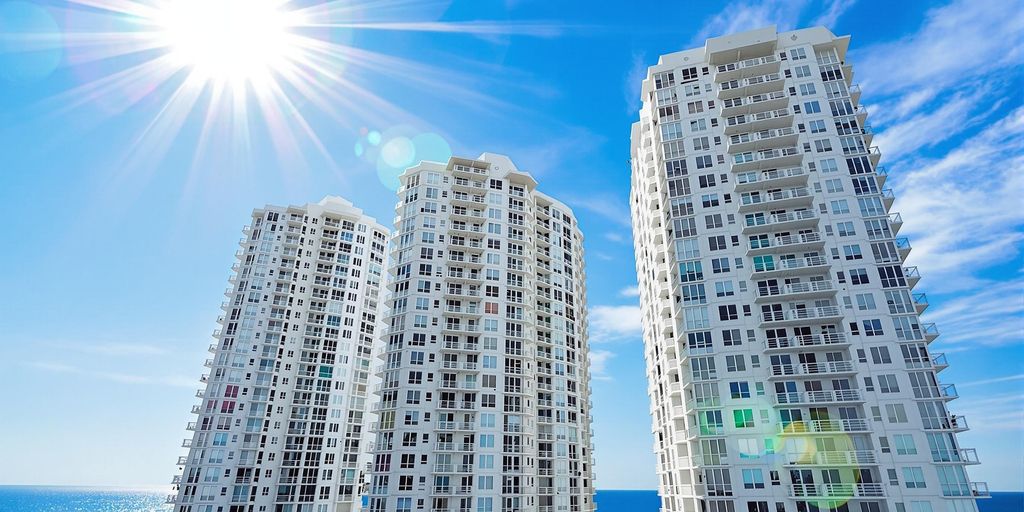Florida’s condominium market is undergoing a significant transformation with the implementation of new legislation aimed at bolstering structural safety and financial accountability. Effective in 2025, these laws mandate stricter inspection protocols, enhanced reserve fund requirements, and increased transparency for condo associations, impacting both current homeowners and prospective buyers.
Key Changes in Florida’s Condo Legislation
Florida’s House Bill 913 and Senate Bill 1742 represent a comprehensive overhaul of condo regulations, spurred by concerns over aging infrastructure and financial management, notably highlighted by the Surfside collapse. The core objectives are to improve building safety through regular assessments, ensure financial stability via mandatory reserve funds, and boost accountability within condo associations.
Key components of the new legislation include:
- Mandatory 10-Year Structural Inspections (SIRS): Condo associations for buildings three stories or higher must conduct a Structural Integrity Reserve Study every decade. These studies evaluate critical building elements and inform necessary funding for future repairs. Findings must be shared with all unit owners.
- Milestone Inspections: Buildings reaching 30 years of age, or 25 years if coastal, must undergo an initial milestone inspection by December 31, 2025, with subsequent inspections every 10 years. These assessments, conducted by licensed professionals, identify essential repairs.
- Board Member Training and Financial Transparency: Board members are now required to complete certified training covering fiduciary duties, financial literacy, and legal updates. Associations must also improve communication with unit owners regarding major decisions and make financial records more accessible.
- New Reserve Fund Requirements: Associations must maintain dedicated reserve funds for essential repairs and maintenance, including roofing, structural integrity, electrical, and plumbing systems. Temporary pauses on reserve contributions are allowed for up to two years, and associations can utilize lines of credit or loans for repairs.
Impact on Florida Condo Owners
Current condo owners can expect several changes:
- Increased HOA Dues: Contributions to reserve funds for essential repairs may lead to higher monthly fees or special assessments.
- Understanding Inspection Timelines: Compulsory structural inspections introduce new responsibilities and potential costs.
- Enhanced Financial Transparency: Owners will have greater access to detailed financial and structural information about their associations.
- Property Value Considerations: Compliance with new regulations could positively influence property values, with well-maintained buildings potentially seeing value retention or increases.
What Buyers Should Consider
Prospective buyers must exercise increased diligence:
- Reviewing Documentation: Thoroughly examine inspection reports, reserve studies, and financial statements.
- Lender Restrictions: Be aware that some lenders may hesitate to finance condos not in compliance with new regulations.
- Assessing Compliance: Non-compliant buildings may pose risks of future costly repairs and financing challenges.
- Value in Compliant Condos: Properties adhering to the new laws may offer greater long-term stability and value.
Florida’s Condo Market Response
The market has reacted to the new laws, with a notable increase in listings, particularly for older buildings facing significant repair costs. This has led to a rise in inventory and a softening of median condo prices in many areas. Buyers are becoming more selective, favoring compliant and well-managed properties, while non-compliant buildings often experience longer listing times and lower sale prices. Financing has also become more challenging for older, non-compliant properties, creating a bifurcated market.


